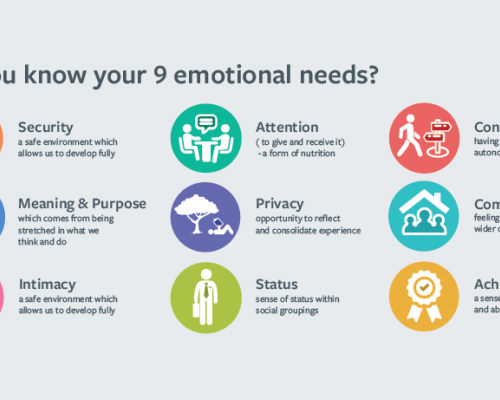Don’t Worry, Be Happy… and Overcome Anxiety
Do you think of yourself as an anxious person? Perhaps your mother or father suffered from anxiety and maybe a sibling does too. This can lead you to think that anxiety is your lot; you inherited it and therefore there is damn all you can do about it. Well, that isn’t true at all and you are confining yourself to a limiting box if you continue to believe that.
It is true is that a percentage of our experience of anxiety is down to genes – between 30 to 40 per cent of it, no less, is passed down as a family trait. But that just explains how stressful different people find different situations to be and how likely they are to respond with anxiety when they feel they are under threat. So someone with a higher load of genetic anxiety may find talking to people in social situations or having plans changed at the last minute or getting ready to go on holiday much more stressful/threatening than someone with low genetic anxiety. This does not mean you are stuck with it. It means that you especially can benefit from learning smart, doable ways of handling whatever situations are stressful for you.
Yes, your default position may be to feel nervous when you think about giving a presentation, asking the boss for a rise, cooking a meal for guests, or whatever gets your own cortisol soaring, but you can learn tried and tested ways to prevent it escalating and messing up your life. General anxiety and social anxiety can easily be managed, once you know how, and the first step is to understand what anxiety does to your body – and your mind. You will be familiar with at least some of the physiological symptoms of anxiety, such as sweating, tightness in the throat or chest, difficulty breathing, nausea, and these can all be explained by the ancient fight-or-flight response – a flooding of the body with stress hormones which girded up our long distant ancestors to fight off physical danger or flee it. The same response occurs today, even though what we find threatening is more often psychological. If we could do something active to deal with it, the anxiety would dissipate. But, unfortunately, our thinking brains tend to barge their way into the picture and come up with frightening scenarios that ramp up the anxiety instead, sometimes to panic attack proportions.
That doesn’t have to happen. You can learn to recognise and treat the rising feeling of anxiety in such situations as a helpful warning sign to apply your anxiety management techniques. Some people get back ache when they are over-stressed; some people come out in spots; you experience anxiety – they are all just like satnav signals telling you to stop, recalculate and get going calmly down the right road again.
You are not an anxious person. You are person who can be hit by anxiety – and can learn to handle it. And the more you do something different successfully in those stressful situations, the more your brain learns to expect to cope. In effect, then, you can learn to outwit your own genes.
Denise Winn is a journalist, editor and author specialising in psychology – who has also practised as a human givens therapist since 2000. She tutors a 1-day training course ‘How to Control Severe Anxiety’ for Human Givens College. You may also be interested in the Human Givens Online course: ‘Understanding Anxiety – and managing it without drugs’.
Latest Tweets:
Tweets by humangivensLatest News:
HG practitioner participates in global congress
HG practitioner Felicity Jaffrey, who lives and works in Egypt, received the extraordinary honour of being invited to speak at Egypt’s hugely prestigious Global Congress on Population, Health and Human Development (PHDC24) in Cairo in October.
SCoPEd - latest update
The six SCoPEd partners have published their latest update on the important work currently underway with regards to the SCoPEd framework implementation, governance and impact assessment.
Date posted: 14/02/2024













